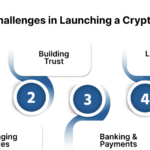Even with the best money lender Singapore around, it is still crucial to have one’s own funds when needed. And these days, everyone is eager to save money and cut costs. From money-saving tips to trends from social media influencers and personal finance blogs, pop financial wisdom comes by the dozens every day. While a number of these tips seem right on the surface, some are little more than fads that won’t necessarily result in significant savings.Mnay of these approaches can even backfire and leave you worse off financially.
Here are some quick savings fads you need to cut. That way, you can make better financial decisions in the long run.
Completely Eliminating Non-Essential Spending
One of the more common money-saving practices is completely cutting out non-essential spending — dining out, entertainment, or even daily coffee runs. Although eliminating non-essential purchases can lead to short-term savings, adopting excessive frugality can damage your relationship with money. When you deny yourself small pleasures to save something with the potential to lead to binging, like cooking vs. going out for dinner, for example, it can lead to burnout and a quick return to overspending. Rather than cutting out non-essential spending completely, finding a middle ground where you can still spend on these goods and services in a way that works for your budget is better. For example, while you should dine out less and dine in more regularly, you should still enjoy an occasional evening out. That way, you’re not restricting yourself but still making significant cuts.
Do It All Yourself Without Even Knowing What You Are Doing
Another trend is “Do It Yourself” (DIY). This can be a money-saver but can be harmful if not approached carefully. Although some DIY projects are simple money-saving tasks, taking on complex repairs or projects when you lack the skill or knowledge can be an expensive mistake. In the same way, if you attempt to repair your car or home appliances without professional expertise, you may do more harm than good, which would indeed demand costly repairs or replacements.
The key is understanding when you should turn to professional services instead of taking on tasks that will only put you in a worse financial position. Seek out DIY projects that you’re good at or can learn to do well, but don’t let the pursuit of DIY savings over — take up an utter budget at all costs.
Buying in Bulk Without a Plan
Buying things in bulk is often hailed as a good way to save money, particularly when it comes to household goods and groceries. But while buying in bulk may save you money on a per-unit basis, it’s only a smart purchase if you have a specific plan for using those items before they spoil or become obsolete. For instance, purchasing larger quantities of perishable items, such as fruits or dairy, can cause waste if they’re not consumed in the given time frame. In addition, buying in bulk for things you don’t use regularly can clutter your space and unnecessarily tie up money. It is best to evaluate whether bulk buys are realistic, will be consumed in the long term, and are worth the space they will take up.
Trusting “Too Good to Be True” Deals
We’ve all seen ads for fantastic discounts or deals that are impossible not to bite on. In those cases, a “limited-time offer” on a luxury item or a bargain basement-priced vacation package typically stirs up the urge for big savings. But many of these so-called “too good to be true” deals carry hidden costs or conditions that render them much less valuable than they might seem. Be sure to research the deal, look for hidden fees, or read the fine print before making any purchases. Impulse purchases with fake savings can cause buyer’s remorse and financial loss. Instead of chasing every deal, purchase just what you really want on sale, and make sure those sales fit into your context.
Slashing Wrongs in Essential Services and Subscriptions
Another popular money-saving trend is slashing all of your subscriptions and services, from your streaming platforms to your insurance plans. Although it may seem like an easy way to cut back on your spending, canceling necessary subscriptions or services can come with hidden costs. For instance, reducing health insurance or car insurance coverage to save a bit could expose you to risk in an emergency. Likewise, canceling subscriptions to services you actively use, such as a gym membership or professional development tools, can affect your lifestyle or long-term goals. Scrutinize which subscriptions you want to eliminate and see if any of your subscriptions can be reduced, or can be replaced by a cheaper alternative.
Taking the Easy Way Instead of Long-Term Financial Planning
Short-term money-saving hacks, like extreme couponing or chasing every sale, can feel good now, but they are rarely sustainable or effective in the long run. It’s because a lot of these fads don’t consider your overall financial condition, for example, your retirement savings, your debt reduction, and your emergency fund. Concentration on these short-term solutions may sidetrack you from executing critical financial steps you need to take over the longer run. Stop wasting too much time on finding small savings and focus on long-term financial planning instead. Having specific goals — like saving a percentage of your income each month for retirement or creating an emergency savings fund — and the framework to help you reach them can allow you to build your wealth over time.
Following “Expert” Advice without Their Due Diligence
Sharing money-saving tips on social media has become a common practice. And though there are good advice among them, other advisors do not have your best interests in mind. Money-saving fads are hardly ever started by people with any real credentials in personal finance. Instead, they’re influenced by outside motivations like affiliate marketing. Taking advice without consideration of your financial circumstances or without doing your research can be disastrous. Advice should always be scrutinized, and guidance should be sought from trusted parties, like certified financial planners, before adopting any new money-saving strategies.
Conclusion
Many so-called financial strategies out there on the internet do not turn out to be as effective, or sustainable, as they sound. These money-saving crazes, like cutting out all non-essential purchases, bulk purchasing without a plan, or taking advantage of “too good to be true” deals, can cause more damage than good. Rather than leaping on each and every trend, focus on intelligent, well-researched approaches that fit your personal financial situation and long-term goals. Financial health is more about making intentional decisions that are best for your overall well-being than trying to hop on every latest money-saving trend.












